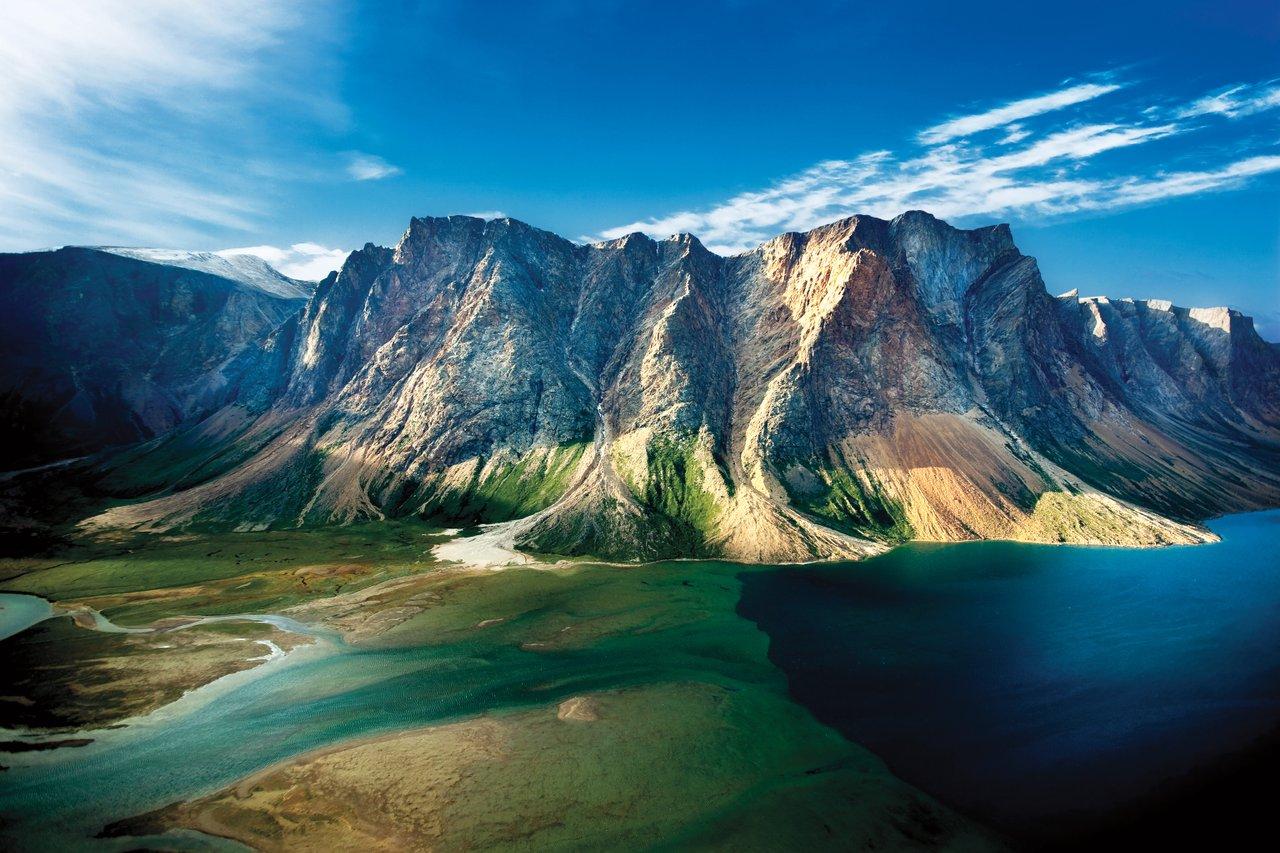
Only a lucky few people see Torngat Mountains National Park each year/Barrett & MacKay Photo
Tongait KakKasuangita SilakKijapvinga-Torngat Mountains National Park has a new management plan.
The remote arctic park, in northern Labrador, welcomes just 500 visitors per year. It protects and presents 9,700 square kilometres (3,745 square miles) of Arctic wilderness and an Inuit cultural landscape.
The Torngat Mountains are among the highest, most rugged mountains in eastern North America and provide one of the world’s most beautiful coastlines.
The park is the traditional homeland of Inuit of Labrador and Nunavik. Inuit have traveled and lived among the deep fjords, towering mountains and wide valleys of this land for centuries, following the migratory paths of the whale, polar bear, and caribou.
Evidence of human history spanning thousands of years is found throughout the park. Inuit continue to use this area for year-round hunting, fishing and traveling. More than a wilderness, this is an Inuit homeland. It is a place where Inuit say “Alianattuk,” which means “this is a good place to be.”
This park is cooperatively managed with Inuit of Nunavik (Quebec) and Inuit of Nunatsiavut (Labrador) who were involved in the preparation of the plan. Partners, stakeholders and the Canadian public were also engaged.

Torngat Mountains National Park is a remote and beautiful park/Parks Canada
The management plan uses the full name Tongait KakKasuangita SilakKijapvinga-Torngat Mountains National Park, using Indigenous languages as a part of the land claim agreement that led to the 2005 creation of the park. "Parks Canada is endeavouring to add these languages throughout our online and analog presences consistently but it is still a work in progress," said Suzanne White. public relations and communications officer for the Western Newfoundland and Labrador Field Unit. "That’s why you’ll see the languages reflected in newer releases, but may still only see English and French in other places."
This remote northern park is difficult to access. Access in the summer is by aircraft or boat charter usually from Happy Valley-Goose Bay, Newfoundland and Labrador, or Kuujjuaq, Nunavik. Inuit access the park in winter on snowmobiles. Parks Canada administers a strict aircraft landing policy in the park to protect the safety of visitors and to protect the ecological and cultural resources in the park. Expedition cruise ships visit the park in summer.
The 10-year plan outlines three key strategies:
New Gatherings – From Sea to Sky: Parks Canada can support its partners to help make Base Camp a sustainable operation financially, culturally, and environmentally so it can continue to support visitors, researchers, the Cooperative Management Board, and Inuit Elders and youth to connect with the land and the stories in the park, and with each other.
Honoring Our Commitments: Parks Canada will work with the Nunatsiavut Government, Makivvik Corporation and the Cooperative Management Board to maintain the ecological integrity and cultural heritage values of the park, recognize and honor Inuit knowledge and the connection Inuit have with the land, and provide opportunities for Inuit and Inuit businesses.
Sharing the Inuit Story – Tongait KakKasuangita SilakKijapvinga through an Inuit Cultural Lens: Sharing the Inuit story is vital for connecting Inuit, visitors and Canadians to Tongait KakKasuangita SilakKijapvinga and fostering an understanding of the cultural and historical significance of this Inuit homeland. Honouring Inuit knowledge will be a living legacy for the park. Expanding the reach of Inuit stories with visitors and Canadians will improve the understanding and appreciation of why this is a special place.

 Support Essential Coverage of Essential Places
Support Essential Coverage of Essential Places






